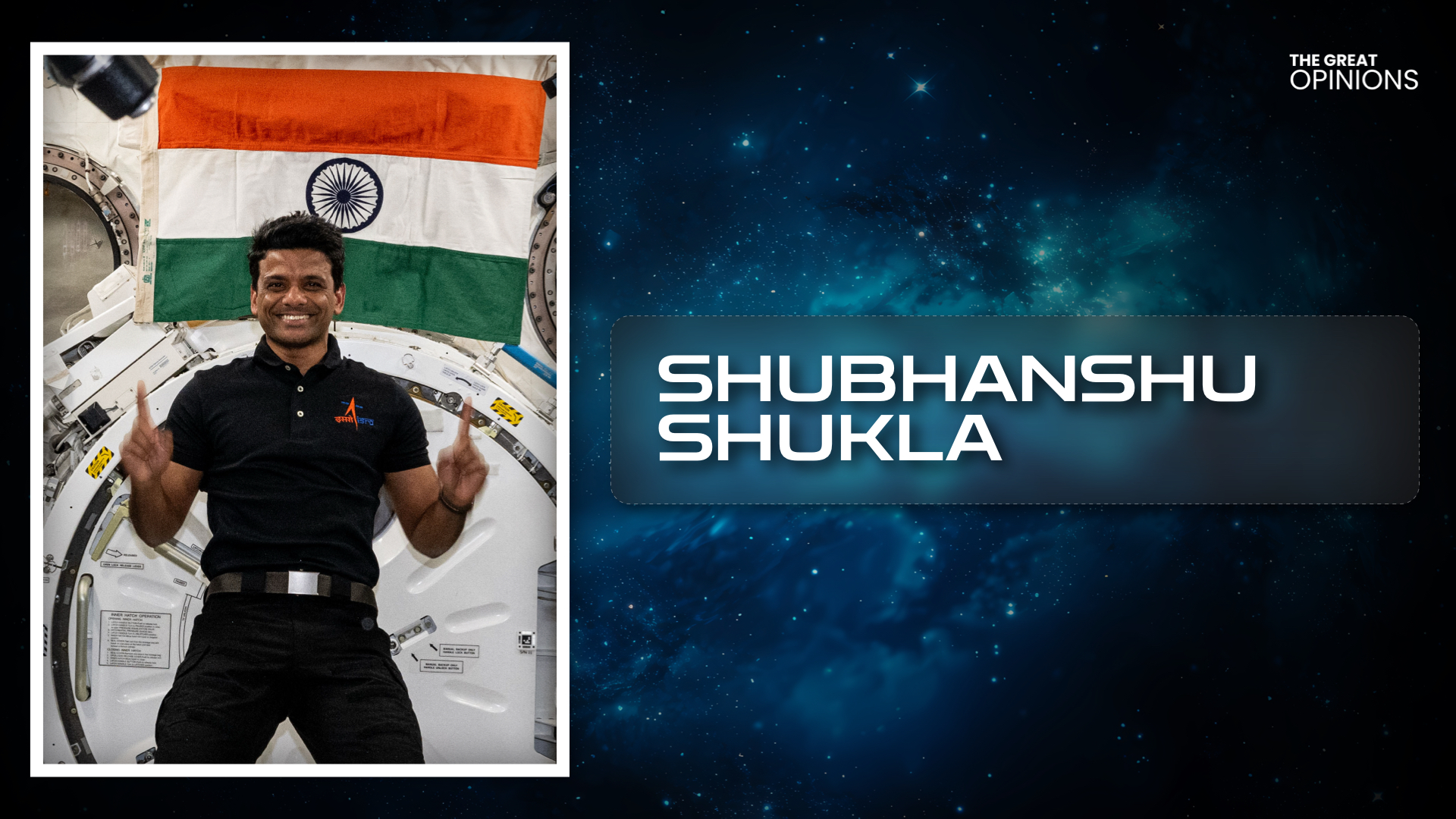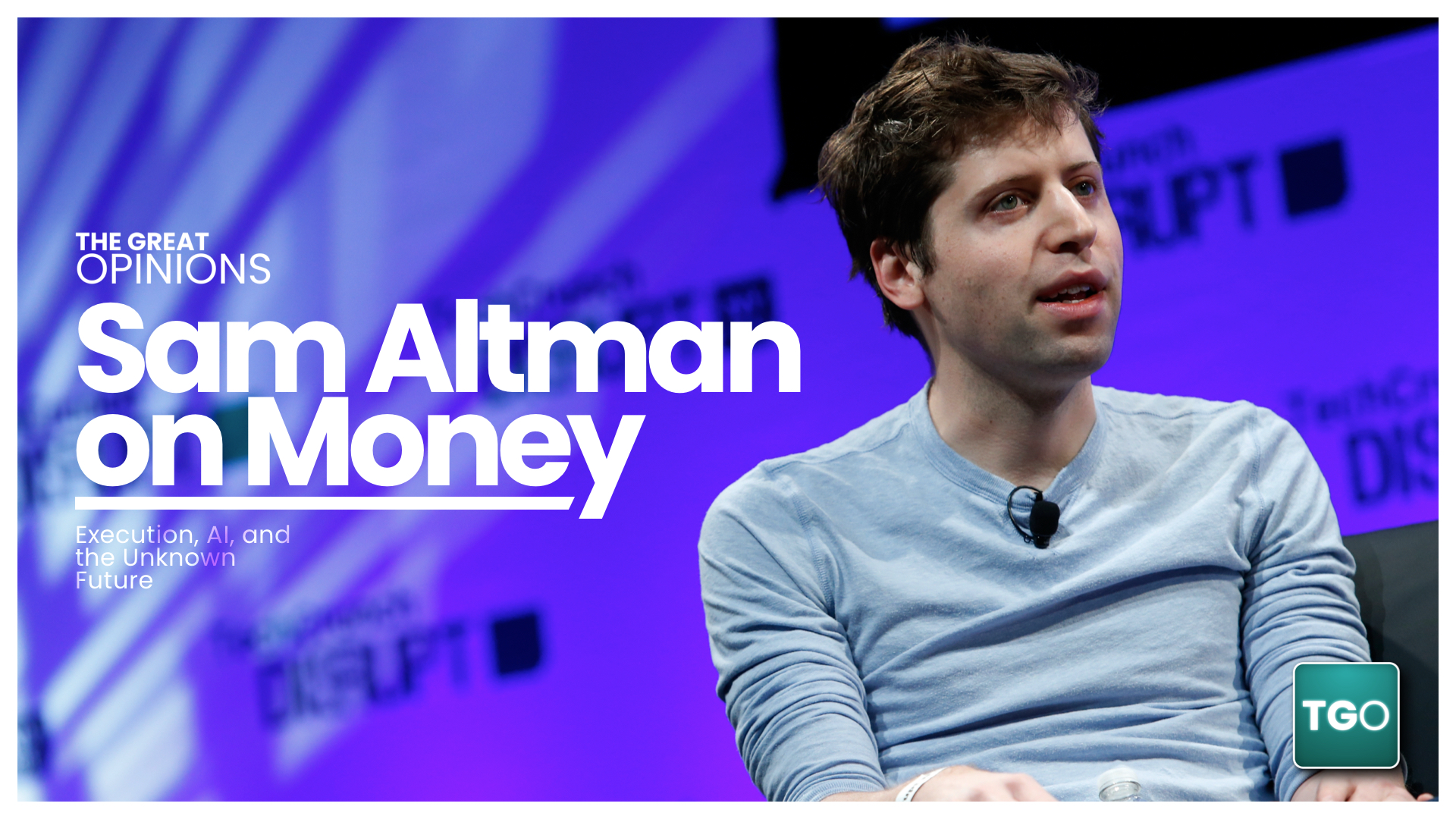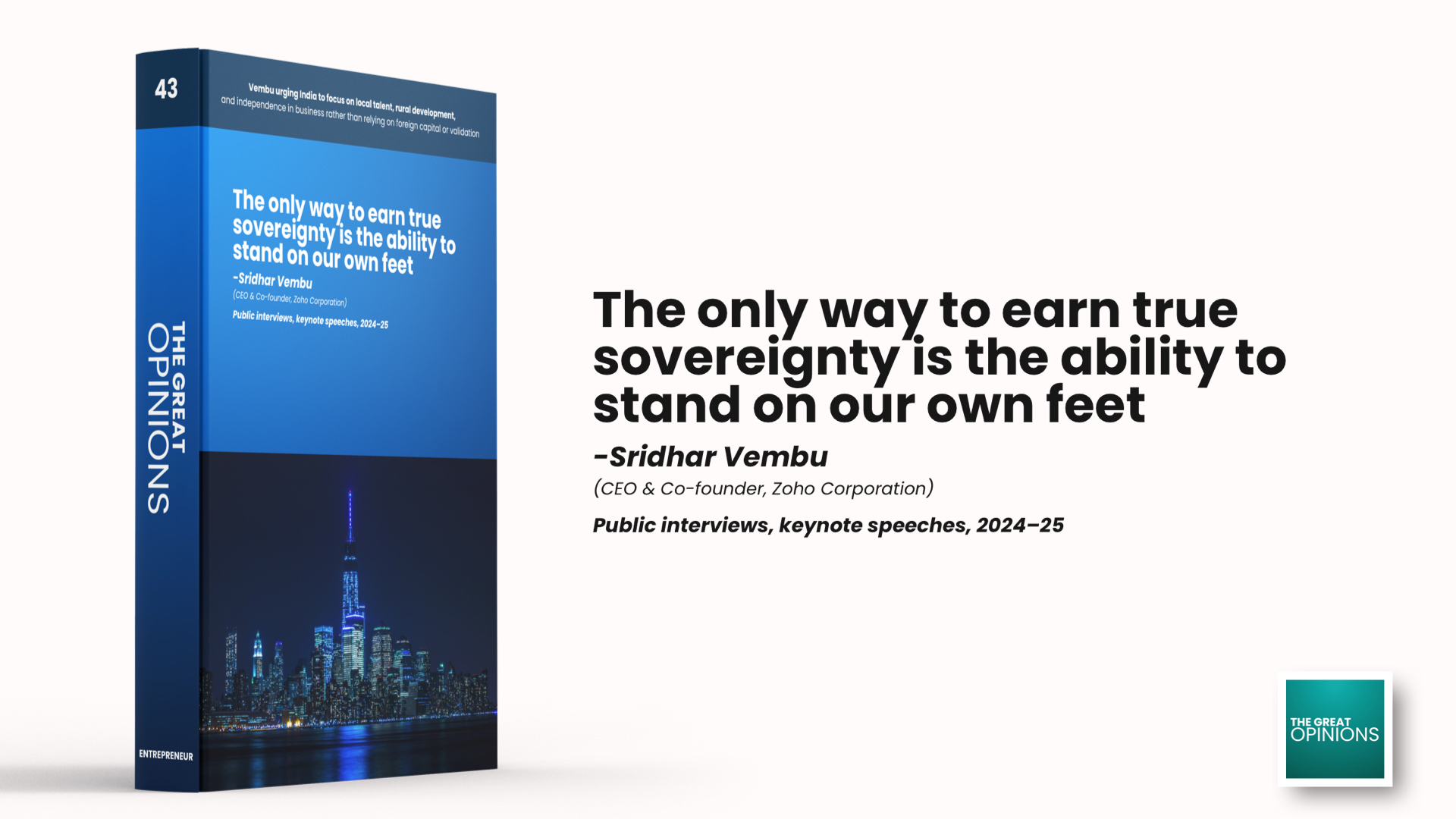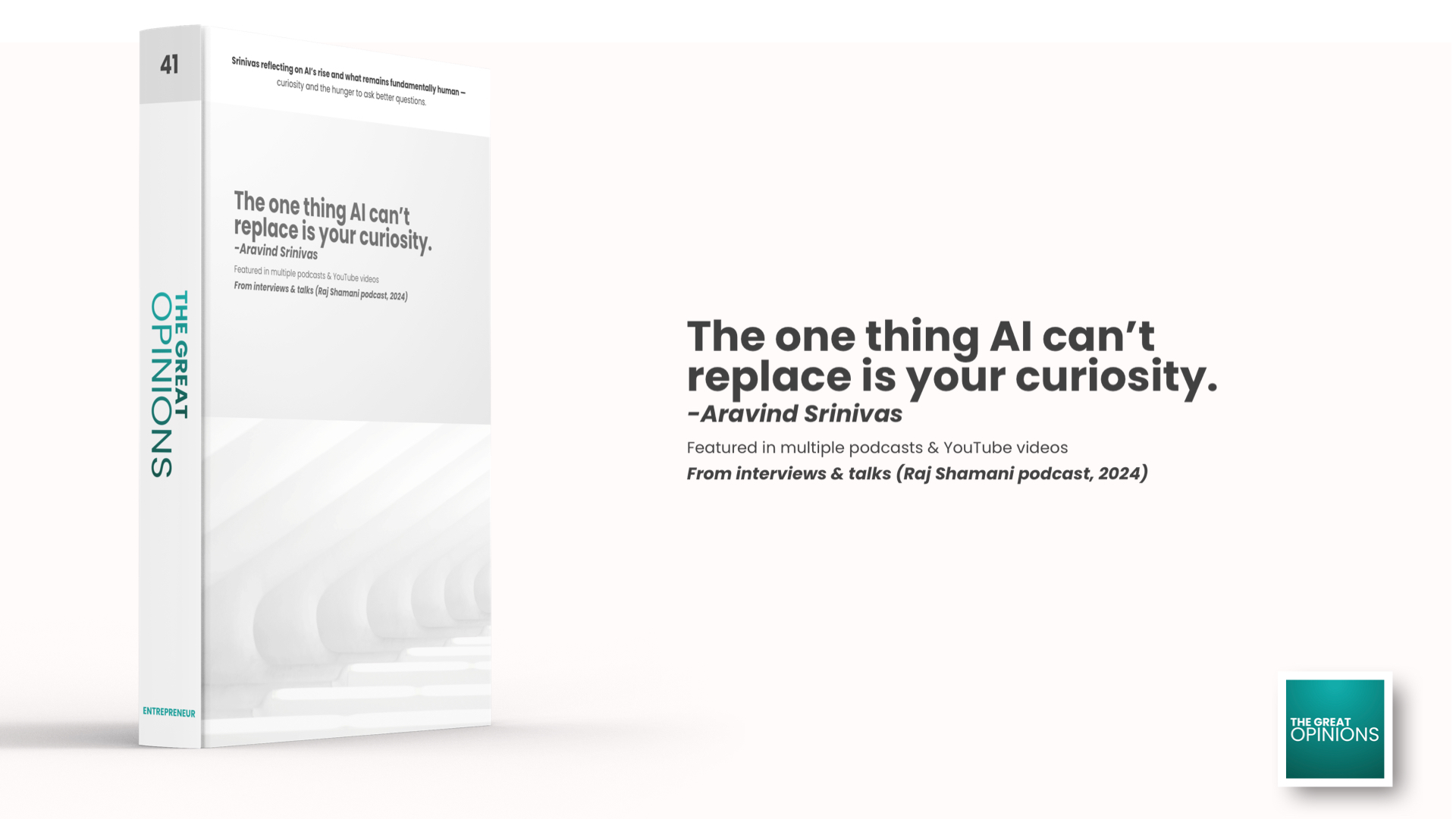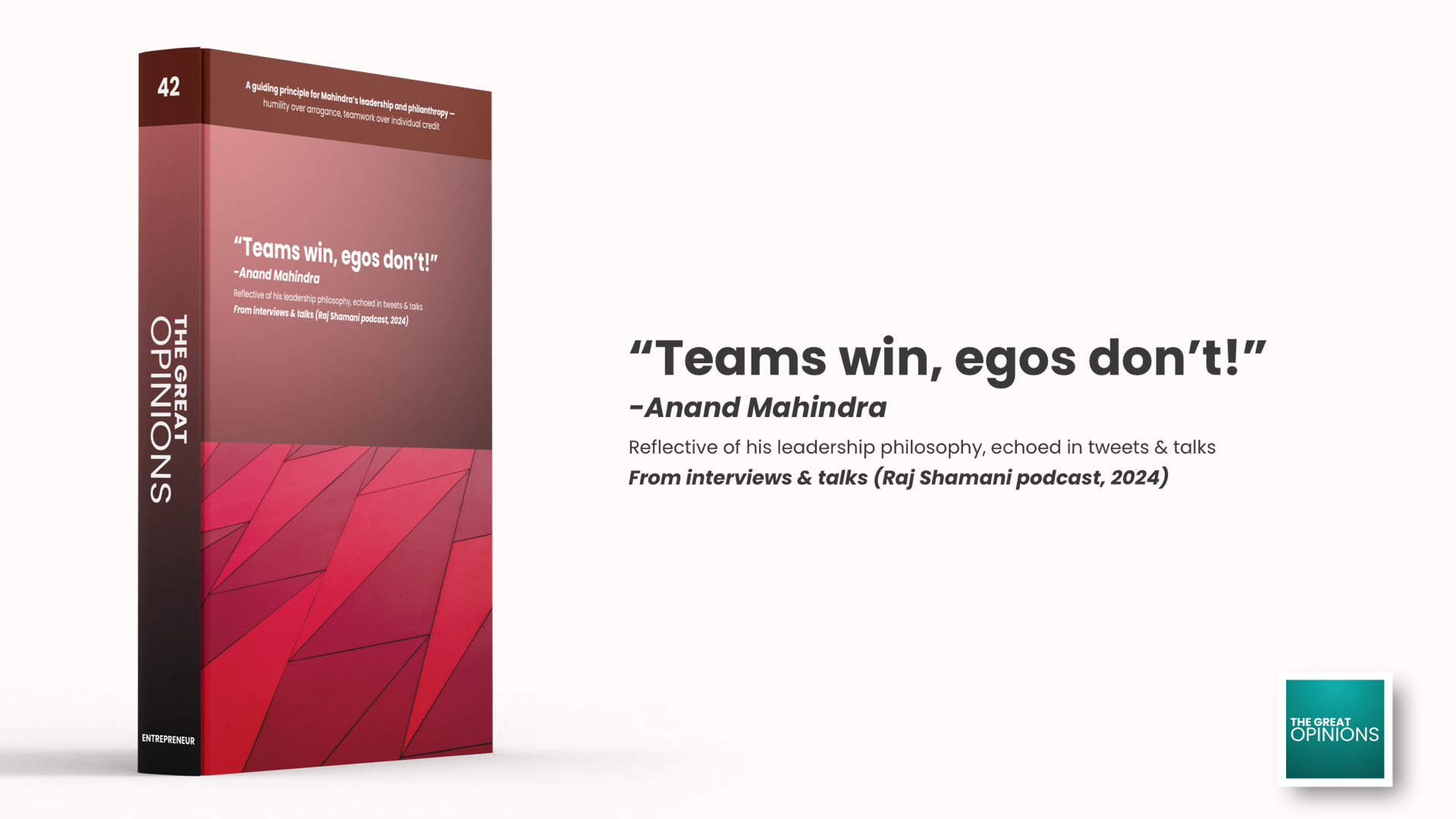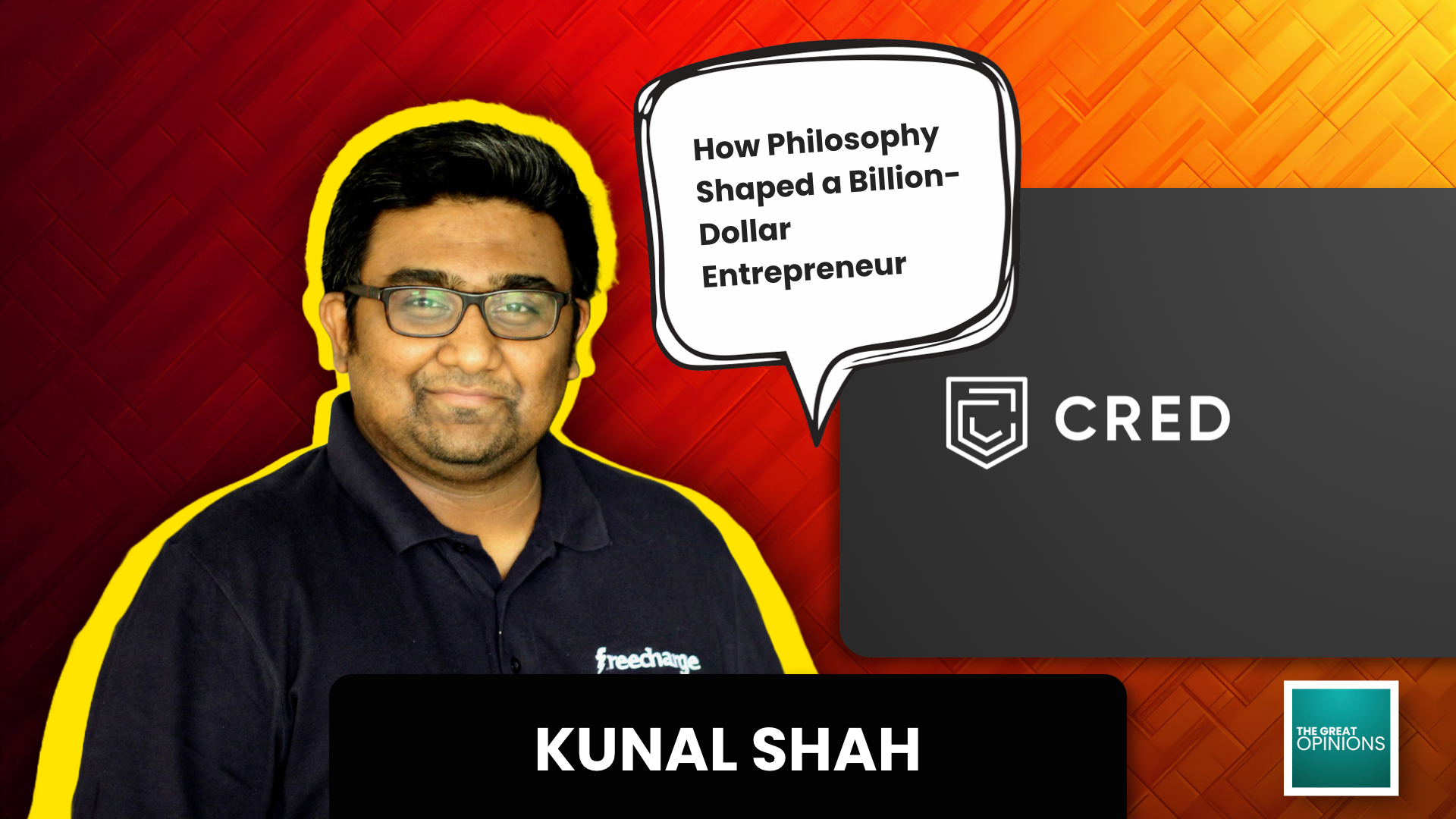Sridhar Vembu’s journey from IIT Madras to rural Tamil Nadu, building Zoho without VC funds, and why he believes money equals sovereignty, not applause.
- Early years and IIT–Princeton journey – Childhood in Tamil Nadu, IIT Madras foundation, PhD at Princeton.
- Why he returned to rural India – Decision to leave the US and root Zoho in Tamil Nadu.
- His lifestyle choices: simplicity as sovereignty – Cycling in villages, khadi clothes, and personal minimalism.
Sridhar Vembu, the barefoot billionaire of Zoho, carries that same creed.
In Silicon Valley, founders worship valuations, exits, and venture capital. Vembu turned his back on all of it. He didn’t beg. He didn’t sell. He didn’t chase the foreigners to save him. Instead, he cycled through the villages of Tamil Nadu, building a billion-dollar empire out of dust and discipline.
His line — “The only way to earn true sovereignty is the ability to stand on our own feet” — isn’t slogan-writing. It’s lived truth. It’s why he built Zoho without a rupee of venture capital. It’s why he hires small-town kids instead of only IIT graduates. It’s why he lives in a village home, not a Silicon Valley mansion.
Bukowski would’ve smiled. Respect doesn’t come from begging for attention. It comes from refusing to bend.
Vembu sees India’s talent not as a burden but as an asset. He sees rural poverty not as weakness but as potential. He sees failure not as doom but as discipline. And when he tells young Indians, “It’s not the job of foreigners to save us. It’s our job to save ourselves,” he isn’t thumping his chest. He’s showing his receipts: Zoho, a $1B+ SaaS powerhouse, profitable, sovereign, built on local roots.
This essay isn’t about his billions. It’s about his stubborn sovereignty. His story is less about money in Swiss accounts and more about money as freedom, dignity, and independence.
Now let’s walk into the reel. The story of Sridhar Vembu — the IIT kid who went West, then came back home to build East on its own feet.
| Element | Details |
| Quote | “The only way to earn true sovereignty is the ability to stand on our own feet.” |
| Speaker | Sridhar Vembu (CEO & Co-founder, Zoho Corporation) |
| Origin / Source | Keynote speeches, interviews, 2024–25 |
| Date & Place | Public talks on entrepreneurship & India’s independence in tech |
| Context | Vembu warned that relying on foreign validation or capital dooms India — true wealth lies in self-reliance and local talent. |
Chapter 1: Sridhar Vembu’s Profile and Personal Life
Born in 1968 in Thanjavur district, Tamil Nadu, Sridhar Vembu grew up in a modest middle-class family. His parents valued education, not luxury. From an early age, he was fascinated not by possessions, but by puzzles.
He graduated from IIT Madras and later earned a PhD in electrical engineering from Princeton University. The path could have led to Wall Street, Silicon Valley, or academia. But Vembu was restless.
After working briefly in the US, he founded AdventNet in 1996 (later renamed Zoho Corporation). Unlike peers who basked in Silicon Valley glamour, Vembu preferred simplicity. Years later, he moved back to rural Tamil Nadu, living in Mathalamparai village near Tenkasi. There, he rides bicycles, wears khadi shirts, and lives without air.
His personal life is his philosophy: simplicity as sovereignty. He rejects corporate vanity. He believes CEOs must stay grounded to understand the people they serve. For Vembu, personal choices are public lessons: wealth doesn’t need display.
Chapter 2: Building Zoho Corporation – The Sovereignty Story
Zoho wasn’t born in a boardroom. It was born in a garage-like setup in California in 1996. Its first name was AdventNet, a company making software tools for network equipment providers.
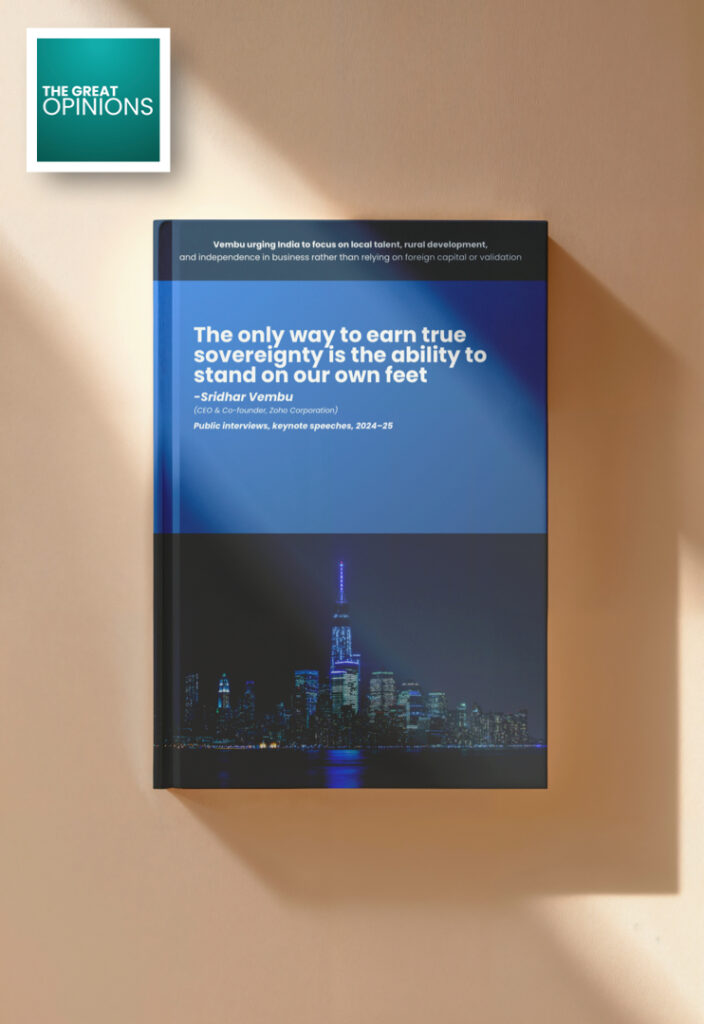
The dotcom bubble burst nearly killed it. Competitors died. Vembu pivoted. He saw the cloud before others did. By 2009, AdventNet rebranded as Zoho and launched a suite of business apps — CRM, email, finance, HR, collaboration.
But here’s the radical part: Zoho never took VC money. Vembu refused foreign capital. While peers celebrated unicorn status with investors’ dollars, Zoho stayed profitable, private, and sovereign.
He didn’t chase Ivy League recruits. Instead, he started Zoho Schools of Learning in 2005. He hired rural kids straight out of high school, trained them in software, and made them engineers. He didn’t see India’s massive young population as a burden. He saw it as his biggest asset.
Today, Zoho serves 100 million+ users in 180 countries. It competes with Salesforce and Microsoft, but from Tenkasi, not Silicon Valley.
This is the sovereignty story: an empire built not on borrowed dollars, but on India’s own feet.
Chapter 3: Philosophy on Money and Business
For Vembu, money = sovereignty.
He rejects the idea that valuation equals value. He mocks unicorns that burn billions chasing vanity metrics. He says: “If we assume we’ll always be successful, we’re going to doom ourselves.”
His philosophy is clear: survival depends on humility, not hype.
Vembu believes money must be reinvested into talent and community. That’s why Zoho invests heavily in rural campuses, not just flashy metros. That’s why he lives simply — to remind others that money is a tool, not a trophy.
His most controversial stance? “It’s not the job of foreigners to save us. It’s our job to save ourselves.” He insists India’s entrepreneurs must stop chasing Silicon Valley validation. Instead, they must build sovereign companies rooted in Indian soil.
For him, the true net worth of a nation isn’t in dollars, but in dignity.
Chapter 4: Tweets and Viral Thoughts
Unlike Anand Mahindra’s polished corporate posts, Sridhar Vembu’s tweets are raw. They go viral because they are blunt.
He writes: “We have so much talent being born here. You can see it as a burden. I see it as an asset.”
Another: “India alone, standing alone, is viable.”
And another: “The only way to earn true sovereignty is the ability to stand on our own feet.”
These aren’t PR-crafted slogans. They’re diary entries. They come from a man cycling past farmers in Tamil Nadu, watching firsthand how talent grows in unexpected places.
That’s why his latest tweets spread like wildfire. They touch the nerve of a country torn between pride and dependence.
Chapter 5: Awards, Recognition, and Respect
In 2021, the Government of India awarded him the Padma Shri for trade and industry. Globally, he has been recognized as one of the most influential tech CEOs.
But Vembu shrugs at awards. He sees them as recognition, not validation. For him, respect comes from honesty, not applause.
His awards are proof that even sovereign builders can be honored by the establishment. But they aren’t his compass. His compass remains sovereignty.
Chapter 6: Net Worth and the Sovereignty Lens
By 2025, Sridhar Vembu’s net worth is estimated at around $3.7 billion, according to Forbes. That makes him one of India’s richest tech founders.
But ask him, and he downplays it. Net worth, he says, is a scoreboard. Sovereignty is the game.
Zoho is privately held. Vembu owns a large stake. That independence means no Wall Street quarterly pressures, no VC board demands. That, to him, is priceless.
So while lists peg him as a billionaire, he insists his real fortune is this: the freedom to choose his path.
Chapter 7: Life Story and Legacy in the Making
Sridhar Vembu’s life story is one of rebellion. From IIT Madras to Princeton, from Silicon Valley to rural Tamil Nadu, he has walked away from applause and towards sovereignty.
He built Zoho not as a unicorn to be sold, but as an institution to endure. He built schools not for branding, but for dignity. He built wealth not for himself, but for sovereignty.
His legacy isn’t Zoho alone. It’s the idea that India alone, standing alone, is viable.
When history writes about him, it won’t be as a billionaire who lived simply. It’ll be as a teacher who proved that true wealth is independence.
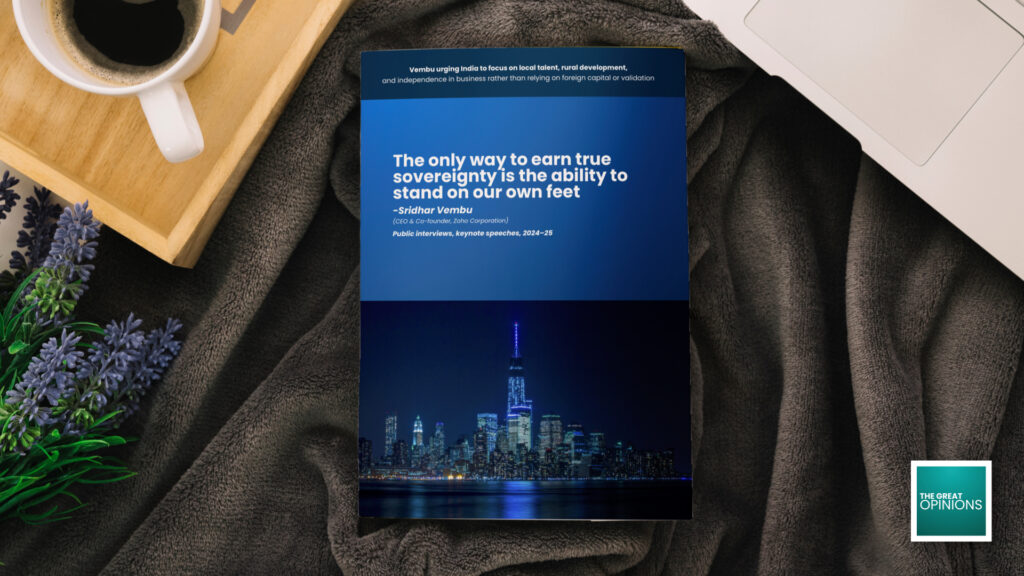
Conclusion
Sridhar Vembu is a billionaire, yes. But more than that, he’s a philosopher of sovereignty.
His quote — “The only way to earn true sovereignty is the ability to stand on our own feet” — is not nationalism. It’s survival. It’s his playbook for money, for business, for life.
In a world obsessed with applause, Vembu reminds us: money without sovereignty is slavery. Money with sovereignty is freedom.
That’s the currency he leaves us with.
Source:
https://www.forbes.com/profile/sridhar-vembu-siblings/
